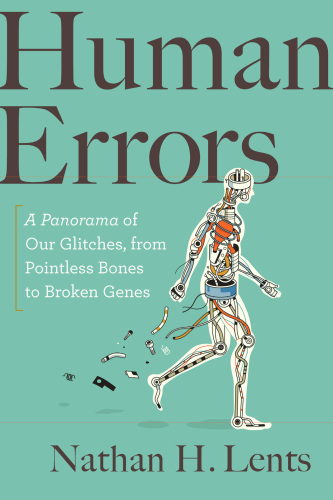
Human Errors
A Panorama of Our Glitches, from Pointless Bones to Broken Genes
کتاب های مرتبط
- اطلاعات
- نقد و بررسی
- دیدگاه کاربران
نقد و بررسی

March 15, 2018
Natural selection made us what we are today, and that is deeply flawed. So argues Lents (Biology/John Jay Coll., CUNY; Not So Different: Finding Human Nature in Animals, 2016) in his second book.The problem is that selection happens through random mutations, which are rarely useful. When good, the bearer may leave more offspring and spread the change to future generations. So over millions of years of evolution, our species has been shaped, but not to a state of engineered elegance according to some master plan. By way of demonstration, Lents lists some of our serious defects: The retinas of our eyes face backward so that light has to pass through nerve fibers to reach the photoreceptors. Gravity (from bipedalism) strains the knee's delicate ligament structure. We suffer more colds than other species because of the poor design of the mucus drainage system to our sinuses. The author goes on to review defects in the human genome itself and in major systems: An overactive immune system can result in autoimmune disease and allergies. Regarding reproduction, the hazards to successful conception and childbirth are such that it is a wonder the species has survived. At points in the text, Lents explores cultural evolution, such as the formation of pair bonds and the division of labor, as well as the fixes that science has developed to fight some of our flaws. These aspects are further developed in the final chapters, as the author describes foibles of the brain, including false memory, optical illusions, and various forms of bias and illogical thinking. He goes on to ponder the fate of the species, growing ever more speculative: Maybe stem cells, gene editing, and other miracles of medicine will render us immortal, and maybe we can move to other planets. Or maybe we will implode, since we are already overpopulated and prone to violence and destruction of the environment.The author's offbeat view of human evolution makes for lively reading and invites readers to think deeply about some of his wilder conjectures.
COPYRIGHT(2018) Kirkus Reviews, ALL RIGHTS RESERVED.

























دیدگاه کاربران